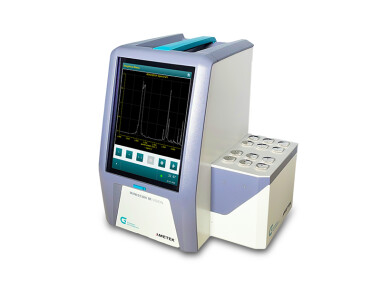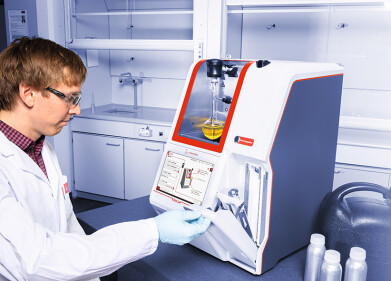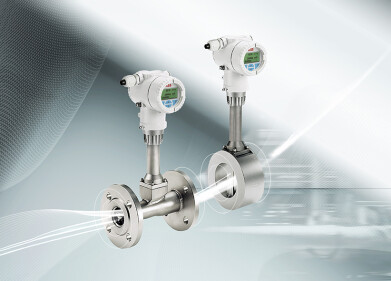Analytical Instrumentation
Fuel:Bio Relies on Cambridge Viscosity to Keep its Biodiesel Flowing
May 24 2010
It’s 10 times less toxic than table salt and biodegrades as fast as sugar. It’s virtually sulphur-free, yet it can be used to heat your home and run your diesel engines more effectively and economically than oil, natural gas, or standard diesel fuel. And it’s not science fiction.
It’s called biodiesel, and it’s a clean-burning alternative fuel produced from domestic, renewable sources of vegetable or animal fats and oils. It can be used in most modern diesel engines without modification and can reduce petroleum emissions by more than 75%. In the current energy climate, with the costs and concerns of carbon-based fuels rising, biodiesel could make a positive impact on the economy and the environment.
Viscosity consistency is key to production quality
New Jersey-based Fuel:Bio One, a division of Fuel:Bio Holdings, is the largest commercial producer of biodiesel in the northeast. The company currently has the capacity to produce more than 50 million gallons of biodiesel per year, with a planned expansion to more than 500 million gallons annually. It sells its biodiesel to wholesale distributors and industrial users.
Fuel-grade biodiesel must be produced to strict industry specifications (ASTM D6751- 07a) in order to ensure reliable performance. In particular, biodiesel production quality requires continuous monitoring and control of viscosity in the process line. Fuel:Bio protects the value of its proprietary technology and chemistry production methods by using the Cambridge Viscosity VISCOpro 2000 viscometer.
“If the viscosity spikes, that means there’s a problem,” says Marty Borruso, CEO of Fuel:Bio. “The cause is usually unreacted material going through the line.” The result of that will be bad product, which can lead to costs and delays that can harm the business. That’s why it’s critical to continuously monitor the viscosity. “The VISCOpro2000 sounds an alarm when the viscosity spikes,” Borruso explains, “which alerts us to make the appropriate adjustments before the quality of the product can be negatively affected.”
A reliable solution
With a unique sensor technology directly in the process line, the VISCOpro 2000 system utilises advanced electronics with a remote, menu-driven interface to enable operators to control set points and collect, store, and transfer data. Cambridge Viscosity also developed real-time graphing software so that operators can ensure that the process is running smoothly. Six different alarm settings alert operators of the need to make changes on the fly – such as adding catalyst or feed stock – to ensure that the resulting product is within approved quality standards.
Fuel:Bio started production with the VISCOpro 2000 at the end of February 2007. “We went with Cambridge Viscosity because of their experience in refining environments, and because their products are reliable,” says Borruso. “The VISCOpro2000 has worked very well for us to date.”
Digital Edition
PIN 25.2 Apr/May
May 2024
Safety - Carbon monoxide toxic and flammable gas detection Analytical Instrumentation - Density: A fundamental parameter at critical stages within the petroleum sector - Advancements and...
View all digital editions
Events
Jul 10 2024 Birmingham, UK
Thailand Oil & Gas Roadshow 2024
Jul 11 2024 Rayong, Thailand
Jul 20 2024 Denver, CO, USA
Jul 21 2024 Cape Town, South Africa
Jul 24 2024 Bogata, Colombia


















